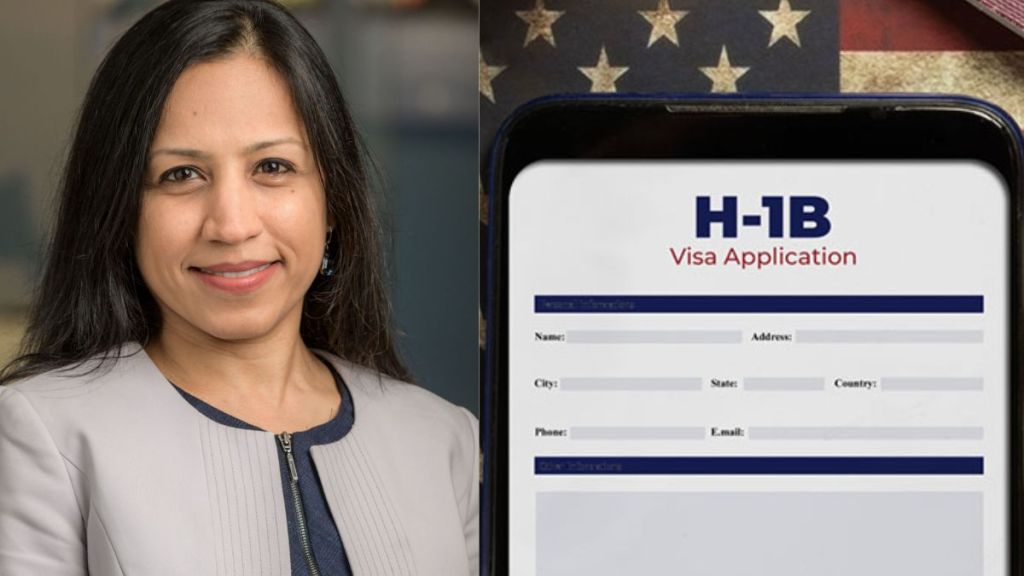President Donald Trump’s September 19 proclamation mandating a $100,000 fee per petition for US employers seeking to hire an immigrant worker under an H-1B visa has raised alarms across multiple industries, particularly in health care.
The fee applies to each petition filed by institutions looking to bring in a single H-1B employee, creating significant financial hurdles for hospitals, universities, and technology firms that rely on skilled international professionals.
Impact on health care and rural access
While technology firms have historically dominated H-1B usage, health care providers are increasingly dependent on the program. Out of nearly 40,000 H-1B petitions approved in 2024, about 4% were for healthcare workers, according to the American Hospital Association.
Dr. Shefali Mahesh, pediatrician-in-chief at Akron Children’s Hospital, said she believes the fee’s effect on hospitals and clinics is an “unintended consequence” that will harm pediatric care.
“There’s declining interest of US medical graduates to pursue pediatrics as a profession,” Mahesh told Akron Beacon Journal, noting that most American graduates seek work in major cities rather than rural or underserved regions.
“We are reliant on H-1B visa holders from various countries to come into this country and provide pediatric services and pediatric subspecialty services to our communities,” she explained to Akron Beacon Journal.
“The fee requirement will negatively impact the provision of health care services in rural areas.”
Mahesh, who first came to the US on an H-1B visa in 2002, warned that the policy will make it harder to recruit and retain physicians. “The quality of care will decline, innovation and research will suffer,” she told Akron Beacon Journal.
The fee, she added, is “cost prohibitive” and “deters folks from coming here because they aren’t sure what their future’s going to look like.”
Recent US Citizenship and Immigration Services (USCIS) guidance clarified that the non-refundable fee applies only to new H-1B petitions filed on or after September 21.
Exemptions exist for extensions or amendments for workers already in the country, and the Secretary of Homeland Security may grant waivers only in “extraordinarily rare” cases deemed in the national interest.
Mahesh said that with declining domestic interest in pediatrics and rising visa barriers, hospitals like Akron Children’s will struggle to maintain care standards. “This policy,” she said, “puts the most vulnerable communities at even greater risk.”
Attorney explains impact of H-1B visa fee
Immigration and business attorney Farhad Sethna, owner of Immigration America in Cuyahoga Falls, argued that the proclamation is based on a “false premise,” that the H-1B visa program has been abused by underqualified, low-paid workers.
“The qualifications include that H-1B applicants must have a bachelor’s degree or higher level of education, the job they are applying to come to the US for must require a bachelor’s degree or higher level of education and the employer must be willing to pay at least the prevailing wage or higher for the position,” Sethna explained to Akron Beacon Journal.
Sethna added the significant contributions H-1B workers make to the national economy and to regions like Greater Akron.
“The value that H-1B visa holders provide to Greater Akron and the country cannot be underestimated,” he said to Akron Beacon Journal.
He also noted that the shortage of US born professionals in technical fields has long driven the need for international workers. “Many Americans forgo hard sciences and computer and math science,” Sethna added to Akron Beacon Journal. “Therefore, there is a shortage of those skilled professionals in those areas.”
According to Sethna, H-1B professionals are integral not only to technology and automation but also to health care, especially in rural communities struggling with physician shortages.
The proclamation also directs the Department of Labour to revise prevailing wage levels, which Sethna believes could raise wages across the board and further restrict access to H-1B talent.
“This is my thought, We’re going to probably see a higher wage in almost all of the occupations on almost all of the levels in order to further restrict the ability of companies to hire H-1B workers,” he added to Akron Beacon Journal.
Sethna predicted that some companies may respond by relocating operations abroad. “My prediction is that companies are going to get together and open up remote centers in foreign countries, maybe even in Mexico and Canada, so they’re in the same time zone as the US, and they’re going to put all their workers over there.”


